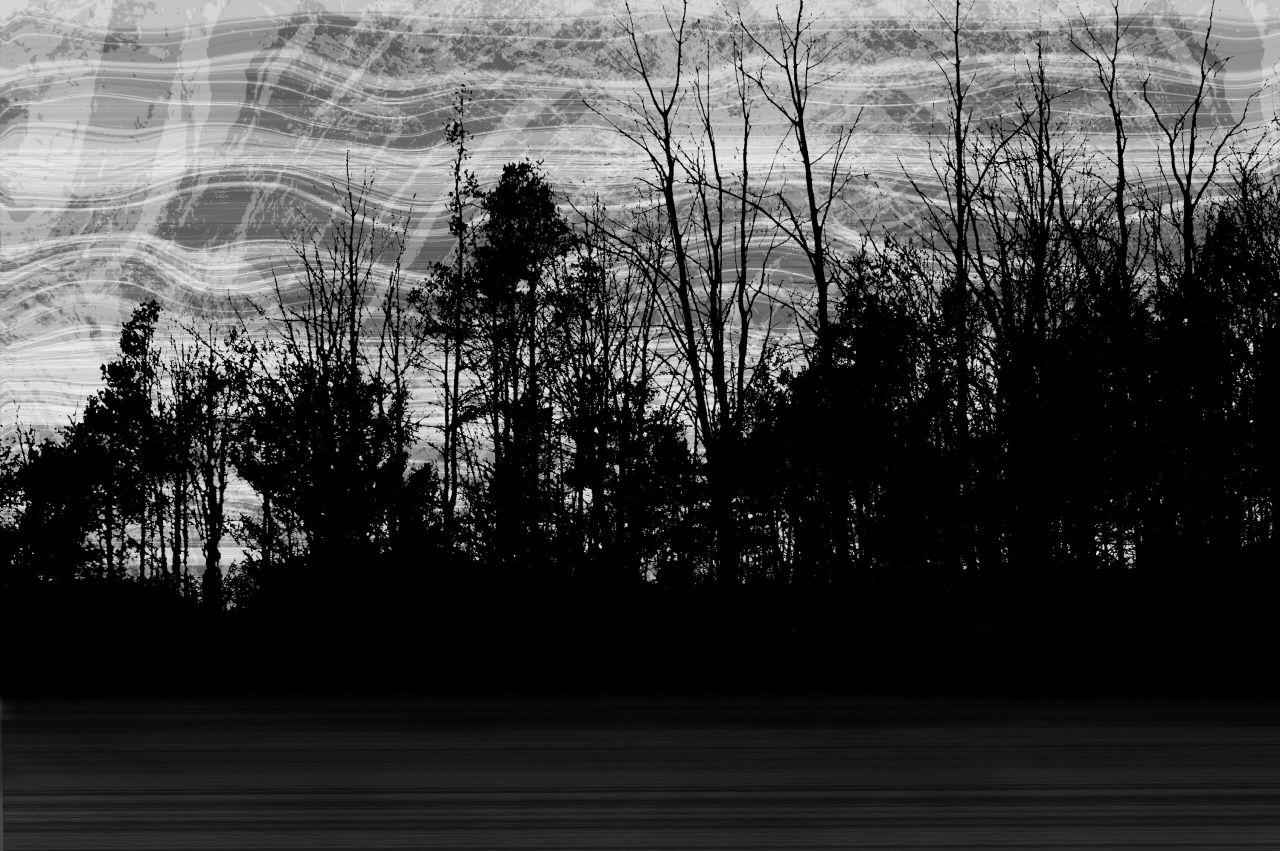Stephen Benz

En Route
En Route : A Haibun Sequence
1. Meridian, Mississippi
Meridian was where my passengers needed to go, three church ladies in pastel hats whose car had broken down alongside a tract of logged-out pine. They were fanning themselves in the shade when I stopped to offer help. A Samaritan, praise be. In Meridian there was a cousin with a tow truck. If I could deliver them to his garage, they’d be much obliged. Squeezed together in the backseat, they hummed a hymn and fanned, said that old car was nothing but trouble and the Lord works in mysterious ways.
In town, they directed me up and down humble streets and warned me not to stay too long in Meridian: “the devil’s abode,” the eldest assured me. I said I was hoping to get some lunch. In that case, they all agreed: I should go to Jean’s place, down on Front Street by the train station. Ham and black-eyed peas, they suggested, then hymned their way on into the cousin’s garage, Blessed Auto Repair.
Startled into flight
a flock abandons the tree
magnolia blooms fall
2. Apalachicola, Florida
On the road into town, we keep an eye out for osprey nests, marveling at their construction atop telephone poles. The anhingas, too, are a wonder, airing their wings as they perch on posts along the waterfront. Strolling the streets of Apalachicola, we come across families on holiday, kids licking ice cream cones, public meltdowns, quarrels about where to go next, what to do in the tedious hours ahead. In the Oyster City Bar, someone’s laughing about a bad sunburn: “You should’ve seen the top of his head. Like a big, fat tomato!” Rank sea tang permeates everything, the Gulf Coast in July. In the park, a statue: Doctor Gorrie, inventor of air conditioning. There’s something still unresolved, something left unsaid, the quandary we’ve brought with us but refuse to confront. We stare at the offing, the buildup of storm clouds bringing to mind Emerson:
When we look at ourselves in the light of thought,
we discover life is embosomed in beauty,
all things assuming pleasing forms, as clouds do far-off.
3. Weatherford, Oklahoma
The town shut down early as the first flurries fell. Everyone had gone home long before I arrived, tooling down Main in heavy snowfall, looking for vacancy. I had trouble rousing the innkeeper, who seemed perturbed but still took my money and slid a cold key onto the counter only after scrutinizing the registration form, photocopying my ID, and holding the bills up to the light. Weatherford meant white-out and standstill, an overpriced, seedy room with faltering heat, an hour of flipping through insipid television channels before I dozed off. Come morning, snow filled the streets. Downtown, drifts had blocked doors and storefronts. On the outskirts, number 15 at the Wagon Wheel was banked with snow. When I opened the door, fine powder blew in and sparkled as it melted on the frayed carpet. Wonderful how a blast of winter clears the mind, how extreme cold simplifies matters. Frozen, everything appears crystallized—the branches of a barren tree, a row of stranded boxcars. In Weatherford that day, anything upright—road signs, mileposts—was glazed with ice to the point of startling clarity. But clarity was only in things: myself, I felt as leaden and obscure as ever. Once again, I had second thoughts about the decision to come this way, following the road of false nostalgia. Doubts arose with the snowdrifts. There were crossroads ahead, decisions to make, but for a long day and a half I was forced to wait until the plow appeared to clear a path out of town. As always in the dubious hours, I thought of Bashō, his death poem:
On a journey ailing—
my dreams wander
over a desolate moor.
4. Many Detours
Somewhere in Nebraska—I forget where exactly. A bitter cold day, a wind that brought tears. After two bootless hours at a filling station on the outskirts—telling drivers I was trying to get to Denver or anywhere in that direction—I walked into town along the frontage road, veering into a ditch (cracking through thin ice) whenever the big trucks roared past. Christmas decorations flapping at the used car lot. Pickup trucks parked at the Tack and Feed. Bus depot locked tight. Steam obscuring the diner’s windows. I found the library by the post office, just off the courthouse square, and entered the warm reading room. Set down my pack, took a seat at a table, watched by the librarian and a handful of patrons. In their eyes, I was an obvious vagrant, stranger in a town where there were no strangers. But they let me be, and for an hour I read the newspapers and magazines, feet and hands thawing. Through months of hardship on the road I had not kept up with the news and now I read about the president’s intractable problem, the unending conflict overseas, the fall of governments in South America. There were communities perplexed by kidnappings and addiction. The weather confounded everyone. And what to make of the price of food? Of gasoline? Recent statistics disturbed officials, and in public opinion an ill wind blew. The nation furrowed its brow—never, the editorialists opined, had the impending holidays seemed so grim.
I finished reading and stared out the window. Flurries now, a heavy overcast sky. At any time I could call it off, put an end to this drifting, go back to Spokane, home, the people who waited for me—angry, but ready to forgive, perhaps. I had no reason to believe things would go any better in Denver. Worse for all I knew. A warehouse, a slaughterhouse, gravel work. Busting my hump, barely getting by, paycheck to paycheck. Before I left the library for the bus depot, the librarian asked me to fill out a brief questionnaire. They were trying to keep the library open in the face of budget cuts. What had been the purpose of my visit? There was no obvious answer, (other than “escape from the cold”), so I wrote the words that had haunted me since I first read them in high school—a catchphrase, a dictum, a mantra taken from Roethke’s “Journey to the Interior”:
“In the long journey out of the self there are many detours.”

